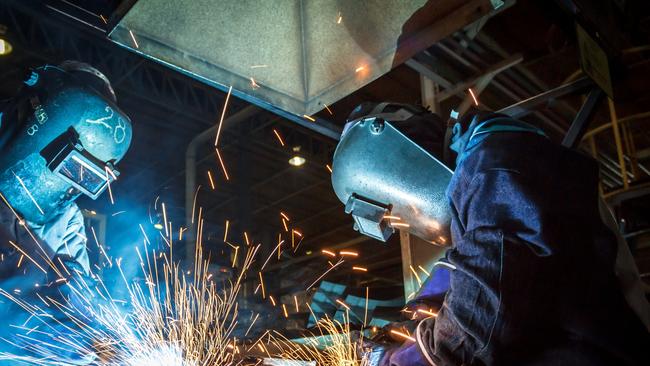The Made in Australia Act and our National Competitive Advantage
The Future Made in Australia Act is a fine balancing act to “arm wrestle” some value-add manufacturing and processing back onshore while hopefully retaining our key trade relationships.

Much debate has ensued following our government’s policy announcements around the Future Made in Australia Act. From free-marketeers to diehard protectionists, the polarised opinion at each extreme has been striking. It is true that Australia has had mixed success with car manufacturing the “go-to” case study for the free trade advocates opposing government intervention. Fair enough.
Given the hundreds of millions squandered in uncompetitive car making they have a point. However, we must also recognise that not all government support for manufacturing is bad policy and that “absolutes” that please the purists are elusive in today’s world. This country has been subsidising key industries for decades, especially where we possess a natural resource advantage. Take aluminium. We have created a manufacturing base for aluminium smelting because we had abundant bauxite, the building block for this critical metal. But smelting aluminium requires huge amounts of electricity. Australia’s smelters consume a significant proportion of all power generated in the National Electricity Market. These plants have been supported by taxpayer subsidies for decades mostly because our electricity has not been cheap enough to render smelted metal globally cost competitive. Yet they employ thousands of Australians, create export income and so lives on as a supported domestic industry.
It seems the debate needs greater honesty concerning not only the billions in industrial subsidies that already exist, but the fact that “free trade” as preached by Adam Smith is either dead or dying in today’s geopolitically charged world.
In Adam Smith’s Wealth of Nations (1776), the man widely regarded as the father of modern capitalism and a free-marketeer, argued that nations should focus on economic activities where it possessed a comparative advantage in order to maximise wealth. Much of the world’s economic growth and advancement ever since has largely reflected that.
In Australia’s case we have gone from “riding on the sheep’s back” to exploiting our coal and iron ore resources, tapping our gas reserves for conversion to export LNG and more recently becoming a global leader in lithium. In each case, our comparative advantage is our natural resource endowments which our trading partners don’t possess. Yet they have built in their home countries massive industries that process, refine and add value to the basic commodities we export to them. Think Korea, Japan and China.
Adam Smith’s theories don’t cope well when dominant countries subvert the rules of
free trade. The Future Made in Australia Act has at its core, an ambition to “arm wrestle” some of that value-add manufacturing and processing back onshore while hopefully retaining our
key trade relationships. A fine balancing act. It’s hard to fault that ambition, especially if you accept that a country must remain productive to maintain its standard of living.
Government royalties earned from our resources industry and their redistribution contributes in no small measure to our current standard of living. So far so good.

But international trade and the comparative wealth of nations resulting therefrom has changed
fundamentally. The Future Made in Australia Act may be fairly regarded as a pragmatic response by our federal government to that new reality. The US Inflation Reduction Act for example, creates more than $500bn (or more than a trillion on some estimates) of taxpayer funded cash for both the protection and stimulation of, among other things, domestic manufacturing. There is no criteria for eligibility that assesses a beneficiary industry’s comparative advantage. Similarly, recent reports have revealed the staggering levels
of government subsidies that leading Chinese manufacturers receive which empower them to aggressively dominate key sectors of global trade. Moreover, the EU, Canada, the Middle East, Korea, Japan have all announced their own versions of domestic subsidies. None of them are playing by the rules of free trade as envisaged by Adam Smith.
As between both extremes of the debate, there are no absolutes anymore that neatly
fit our economic theories, irrespective of how wedded we are to them. Where does that leave us? Australia has a natural resource endowment in critical minerals and renewable energy that is the envy of the world. There is also little to distinguish the justification for government support for new local industry that exploits those comparative advantages relative to the historic support afforded wool, iron ore, coal, LNG etc.
For the Future Made in Australia Act to achieve its ambitions, we must play smart and select those sectors where we can combine the fundamental cost advantage
of our critical resource and renewable energy inputs together with onshore processing costs and remain globally competitive. If we cannot then taxpayers shouldn’t fund it. Only this discipline will keep any necessary subsidies to a minimum. New green industry that exploits our massive renewable power advantage proximate to critical resources deposits, road and rail logistics as well as our export shipping terminals, seem highly credible for support. These opportunities exist and closely resemble what Adam Smith had in mind, even
if the hand of government assisting them is not that “invisible”.
David Scaysbrook is co-founder and managing partner, Quinbrook Infrastructure Partners.
